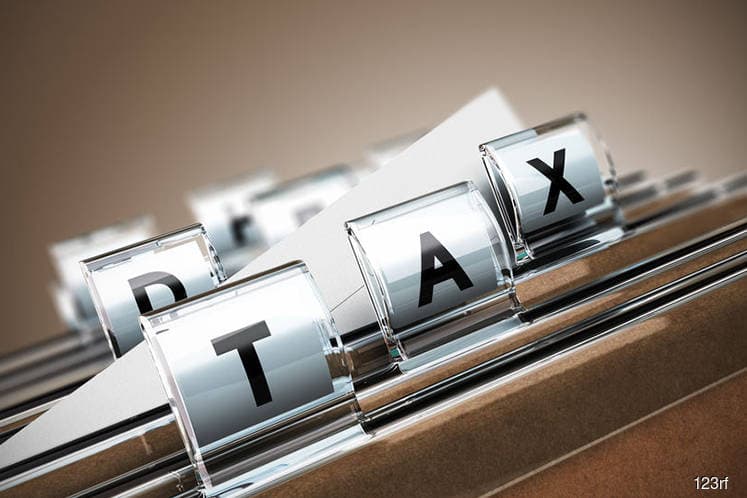
This article first appeared in The Edge Financial Daily on February 27, 2020
KUALA LUMPUR: Interim Prime Minister Tun Dr Mahathir Mohamad will unveil an economic stimulus package today that aims to alleviate some of the adverse impact of the Covid-19 outbreak which has already decimated many sectors, including tourism and retail.
Selective tax breaks of a limited period could be in the package, economists said, given that the government still has the fiscal space — albeit not a large one — to do so.
Economists contacted by The Edge Financial Daily believe a ‘selective’ tax break would be more appropriate than a tax cut as it would not weigh as heavily on the government’s already fragile treasury.
RHB Research Institute chief Asean economist Peck Boon Soon pointed out as the national debt is still below 55% of gross domestic product (GDP), Putrajaya can afford a tax break which would be temporary in nature.
“A tax break is usually more selective and the impact to the government’s coffer is generally more manageable,” he said.
Nonetheless, rather than a tax break, Peck opined it would be better for the government to spend to spur economic activity, which in turn would help to improve companies’ cash flow.
Furthermore, the government spending was expected to be temporary and would have more of a multiplier effect.
Socio-Economic Research Centre (SERC) executive director Lee Heng Guie agrees the government has some latitude to allow for a slightly higher fiscal deficit because a fiscal stimulus is urgently needed at this time to counter strong economic headwinds.
Singapore was the first country regionally to introduce a Covid-19 stimulus package — launching it last week in conjunction with its budget — followed by Indonesia, and most recently Hong Kong.
Lee is of the view the government’s balance sheet has some leeway to provide tax reliefs and allowances to mitigate the impact of Covid-19, and that the finance ministry could relocate some savings to finance the economic stabilisation package.
“Some form of targeted tax relief and capital allowance can be given to provide partial relief and financial support to companies, especially SMEs (small and medium enterprise) in badly affected sectors,” Lee said, pointing to an exemption of tourism tax and service tax on accommodation for a year, to encourage inbound tourism, as an example.
Sunway University Business School economics Professor Dr Yeah Kim Leng concurred with the suggestions, noting other options included raising funds through the sale of assets as well as stepping up its borrowings to finance deficit spending.
Yeah said providing a tax break to stimulate spending in the affected industries and as a relief to cash-strapped firms and businesses would not be an issue “as long as it is within prudential limits”.
While such limits are not well defined, he said the test lies in market and public acceptance. Moreover, expected benefits ought to outweigh the costs of economic capital destruction such as business liquidations and retrenchments.
In the 2003 SARS (severe acute respiratory syndrome) outbreak, the government provided RM8.1 billion under a stimulus package to revive the economy.
‘Global economy not in recession’
SERC’s Lee believes that a tax cut is “not necessary yet” as the global economy is not in a recession. “We don’t have to push to that limit just yet as the impact from Covid-19 on the economy could just be for the short term and not a major economic shock.”
He stressed that the priority now was to look for ways to boost consumption that could see immediate impact. “One way is that … instead of using the government’s money, there could be a reduction in employees’ Employees Provident Fund (EPF) contribution.”
Rather than mooting more spending incentives, Lee said the government could expedite the spending of allocation under Budget 2020.
And, should there be spare funds that the government can afford, it can identify “quick gains or turbocharge” projects that provide immediate impact — not the megaprojects that require medium to long-term gestation.
A tax expert noted that as the tax structure is thin — on average only about 15% to 20% of individuals pay tax — any income tax relief or even a tax rate cut will have limited impact.
“To me, as there is a global downtrend, the issue is about maintaining Malaysia’s fiscal position and so unnecessarily cutting income tax rates is unlikely to provide much benefit,” said chairman of Axcelasia Inc Dr Veerinderjeet Singh.
He said the key task now is providing a stimulus to business sectors which are impacted.
“Some economies may be able to afford grants but Malaysia is not in a position to offer such grants.
“As such, we should look at assisting businesses in managing their cash flow and so allow possible deferrals and/or reduce outflows in terms of bank loans, income tax instalments, EPF contributions, Human Resources Development Fund contributions.”
Singapore set aside S$5.6 billion (RM16.92 billion) to support businesses and households in cash handouts, and tax rebates, among many others, as well as another S$800 million for frontline agencies fighting the outbreak.
Indonesia’s fiscal incentives amounting to 10.3 trillion rupiah (RM3.14 billion) are more focused and aimed at supporting the tourism, aviation, and housing sectors that were directly hit, while Hong Kong’s provided cash handouts.